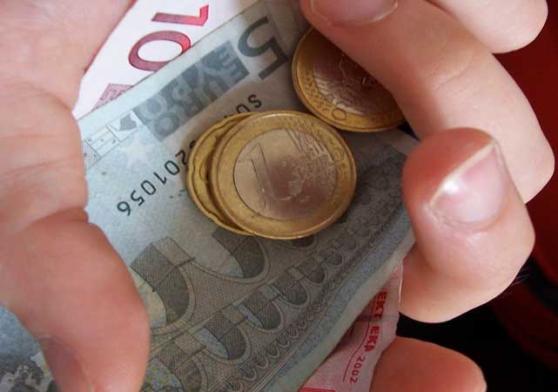ExchangeRates.org.uk - At the time of writing GBP/EUR was trading at €1.1874, up approximately 0.2% from Monday’s opening rate. The Pound (GBP) strengthened against the majority of its rivals on Thursday following the UK’s latest GDP data. On a monthly basis, the UK economy expanded by 0.4% in May, exceeding market projections of a more modest 0.2% expansion and surging from a flat reading of 0% growth in April. Marlet’s were largely optimistic in response to the upbeat release, which suggested that the UK economy is back on track to achieving a year of positive growth coming off the back of last year’s brief slump into a technical recession. An improving services sector has served to enhance UK growth this year, alongside increased activity within the British construction sector, both of which have shown a firm rebound since the UK’s pandemic period.
Sanjay Raja, Chief UK Economist of Deutsche Bank (ETR:DBKGn), commented: ‘While the warmest May on record may have helped activity in the services and construction sectors, UK GDP is now undeniably picking up steam. The short-lived recession is now very much behind us. It’s now likely that Q2 growth could come close to the mark set in Q1 (our current nowcast models point to a 0.6% quarter-on-quarter reading with risks skewed to the upside). Equally, upside risks to our 2024 growth projection of 0.8% are also now crystallising.’
Sterling continued to climb higher against some of its peers as the session progressed, amid an increased sense of UK economic optimism. News of improved economic optimism also served to cheer Keir Starmer’s new UK Labour government, leaving GBP to end the session on a positive note.
Euro (EUR) Stumbles on Easing German Inflation
The Euro (EUR) faltered on Thursday following the latest German inflation data. Headline inflation in the Eurozone’s largest economy eased as forecast to 2.2% in June, falling from May’s reading of 2.4%.
Ruth Brand, President of the Federal Statistical Office (Destatis), said: ‘Energy and food prices have had a dampening effect on overall inflation since the beginning of the year. By contrast, we continue to see above-average increases in service prices.’
Services inflation in various global economies remains a challenge for a majority of central banks, easing at a more sluggish pace than other key price pressures. Talks of sticky services disinflation cushioned EUR’S losses, though investors remained unconvinced that this could be enough to prevent the European Central Bank (ECB) from continuing with its interest rate cut cycle heading into the third quarter. This ultimately saw the single currency edge lower against its rivals, as investors continued to place their bets on further monetgar7y loosening in the coming months from the increasingly dovish ECB.
Pound Euro Exchange Rate Forecast: Risk Appetite in Focus
Looking ahead, a lack of key releases as the week nears its end may see global risk dynamics play a key role in the Pound Euro exchange rate. A spell of cheery trade will likely lift the increasingly risk-sensitive Pound against its safe-haven EUR counterpart, while any gloomy trading conditions could see investors favour the Euro, due to its status as a more secure investment choice. Meanwhile, fluctuating interest rate cut speculations could continue to hamper EUR exchange rates, as market expectations of a September rate cut from the ECB leave the common currency on the defensive.
This content was originally published on ExchangeRates.org.uk
